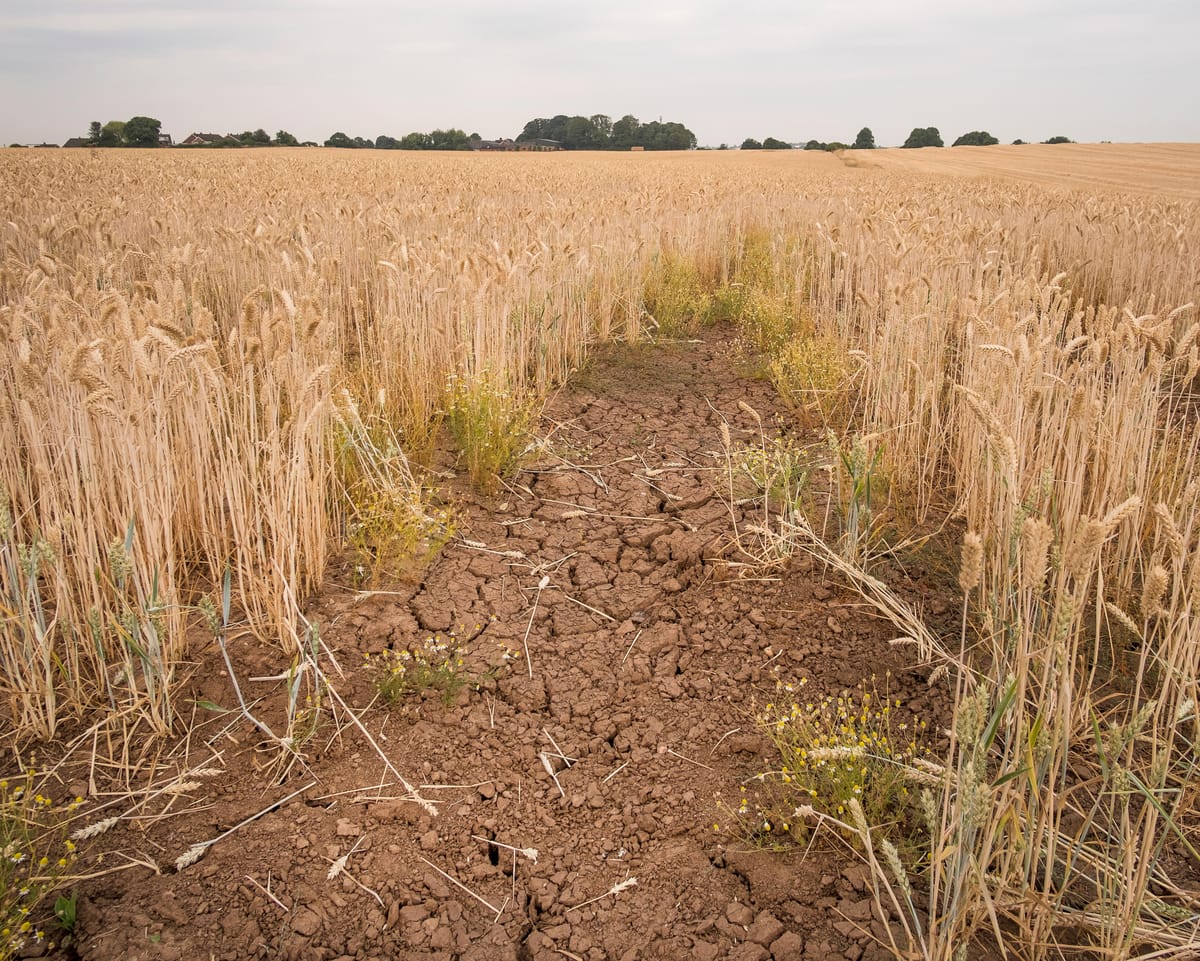The UK faces a growing "climateflation" threat as increasingly severe weather could push food prices up by over a third by 2050, according to research.
Analysis by the Autonomy Institute highlights the financial strain on households, warning that climate-driven food price hikes could push nearly 1 million people into poverty without government action. The UK is particularly vulnerable to heatwaves and droughts disrupting domestic and international food production and supply chains, leading to higher consumer prices.
Recent official data showed UK inflation rising unexpectedly to 3.6% in June, driven by fuel and food costs. Major retailers have reported reduced fruit and vegetable harvests due to dry weather, contributing to inflation. Poor crop yields in west Africa have driven up chocolate prices, while adverse conditions in Brazil and Vietnam have pushed coffee costs higher.
Combining climate data, trade analysis, and economic models, Autonomy researchers warned that intensifying heatwaves and droughts threaten staple crops, strain supply chains, and worsen inflation. Climate change, fueled by fossil fuel use, is expected to bring more frequent floods and droughts. Global food prices have also been affected by failed harvests, conflicts, and trade disputes.
Since nearly half of the UK's food is imported, households are highly exposed to climate-related price shocks from key suppliers, including Spain, France, and Brazil. Domestic farming is under similar pressure, with storms and floods cutting UK vegetable production by 12% in 2023.
The report warns that rising temperatures in major food-producing regions could drive food prices up by 34% by 2050 under a high-emission scenario. Even in a best-case scenario—where global warming is limited to 1.5°C by 2100—cumulative food price inflation could still reach 25%.
Lower-income households would be disproportionately affected, as they spend a larger share of their budget on staples like bread, rice, and meat. UK heatwaves, a key factor in climateflation, could cost households between £917 and £1,247 annually by 2050. Without intervention to offset a 34% price surge, the report estimates an additional 951,383 people could fall into poverty.
Read next

Ryanair plane had only six minutes of fuel upon Manchester landing, records show
Flight Narrowly Avoids Disaster After Storm Diversion
An inquiry has been launched after a Ryanair flight, struggling against severe winds during storm Amy last week, landed at Manchester Airport with only six minutes’ worth of fuel remaining.
The aircraft had been transporting passengers from Pisa, Italy, to Prestwick, Scotland, on

"Qantas customer data for 5 million exposed as hackers release info post-ransom deadline"
Hackers Leak Personal Data of 5 Million Qantas Customers on Dark Web
A cybercriminal group has released personal records of 5 million Qantas customers on the dark web after the airline did not meet their ransom demand.
The breach is part of a larger global incident affecting over 40 companies,

Investors flee record-high UK stocks as EU set to hike steel tariffs
Investors Withdraw Record Sums from Equity Funds Amid High Market Valuations
Data reveals that investors in the UK have withdrawn an unprecedented amount of money from equity funds over the past three months, driven by concerns over soaring stock market valuations.
According to the latest figures from Calastone, the largest

